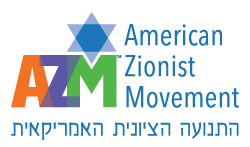
Just as fidelity to the Hebrew language was a key to our redemption from Egypt (Midrash Vayikra Rabba 32:5), so, too, was it a key to our survival throughout the long exile from our homeland. Dispersed to the four corners of the earth, our diligence in continuing to study and pray in Hebrew united us in a collective bond to our common inheritance and its values. Tzedakah, hesed, tikkun olam, am segullah, aliyah, and shalom are just a few of the myriad words and phrases that define who we are with meanings and associations that cannot be fully appreciated in translation. And then a century ago, by virtue of the assiduousness of our forebears throughout the generations, the early Zionists were able to revive Hebrew as a dynamic language enabling those returned onto Zion to conjoin not only with their heritage but also with one another. Enlarging the circle of those able to do so is fundamental to the Zionist vision, predicated as it is on the unity of the Jewish people.
Naturally, then, this conviction is integral to The Jerusalem Program, the ideological foundation of the Zionist Movement. It consists of a basic statement of principles to which all who would call themselves Zionists are bidden to agree, a unifying statement pulling together into a single force those holding a broad spectrum of diverse beliefs and ideologies but who together comprise a single, cohesive World Zionist Organization. It also establishes the tone and direction of Zionism today, as subscribing to it not only affirms one’s belief in the right of the Jewish people to a state and homeland of its own, but also expresses our hopes and aspirations for the society we would wish to create there, as well as for the relationship we would like to see develop between the Jewish state and the Jewish people everywhere.
In creating this unit, then, the World Zionist Organization and its affiliate, the American Zionist Movement, hope to stimulate those using it to engage in a deeper exploration of the ideological underpinnings of Zionism and the richness of the Hebrew language, and to see both as treasures to be embraced and embedded in their own lives.

|
Intro
The lessons of עִבְרִית צִיּוֹנִית – Zionist Hebrew are designed in a modular fashion so that they may be used in a variety of venues, ranging from a 10-minute opening of a meeting or event to a series of 45-minute sessions.
|
|
 |
Lesson 1
Learn about the meaning of Tokhnit תָּכְנִית in The Jerusalem Program.Read more |
|

|
Lesson 2
Learn about the meaning of Ahdut אַחְדוּת in The Jerusalem Program.
|
|
 |
Lesson 3
Learn about the meaning of Aliyah עֲלִיָּה in The Jerusalem Program.
|
|

|
Lesson 4
Learn about the meaning of Hevra חֶבְרָה in The Jerusalem Program.
|
|

|
Lesson 5
Learn about the meaning of Lashon לָשׁוֹן in The Jerusalem Program.
|
|
 |
Lesson 6
Learn about the meaning of Hagannah הֲגַנָּה in The Jerusalem Program.
|
|

|
Lesson 7
Learn about the meaning of Yishuv יִשּׁוּב in The Jerusalem Program.
|
